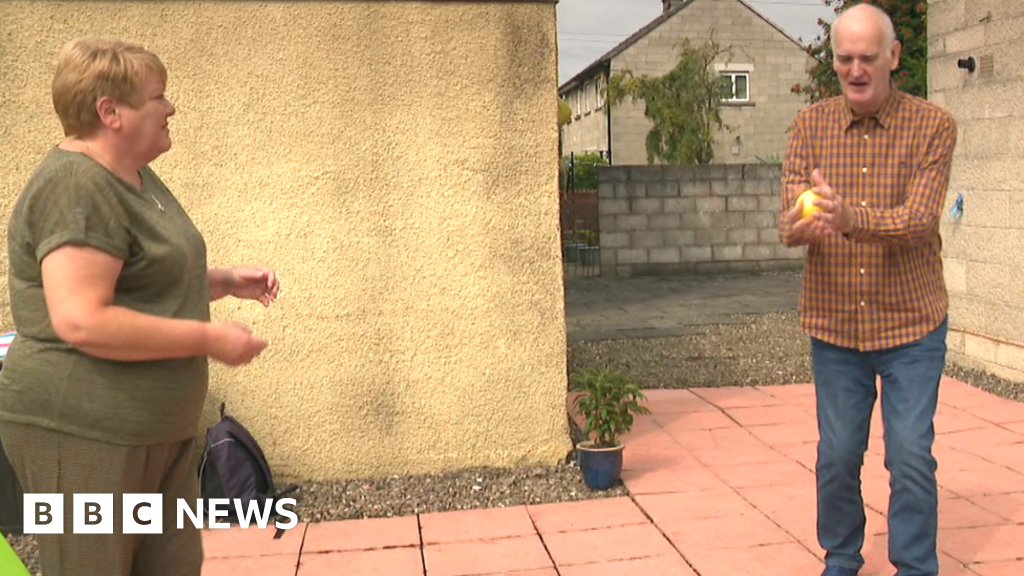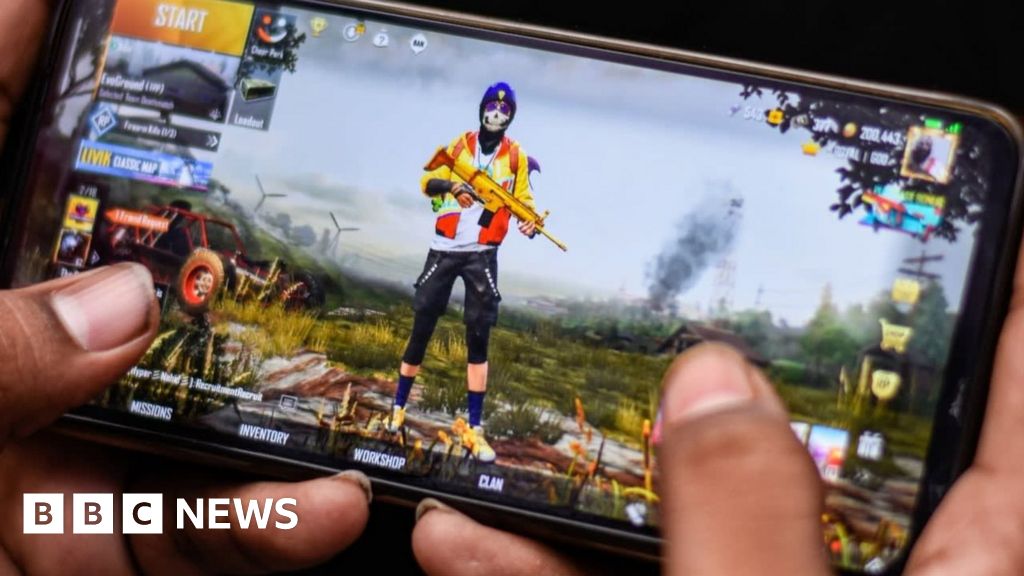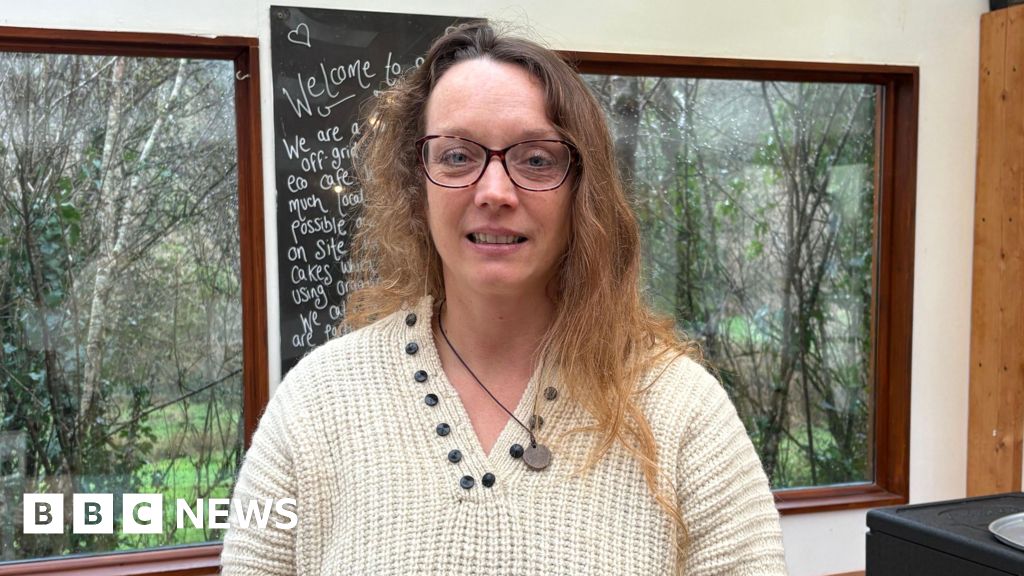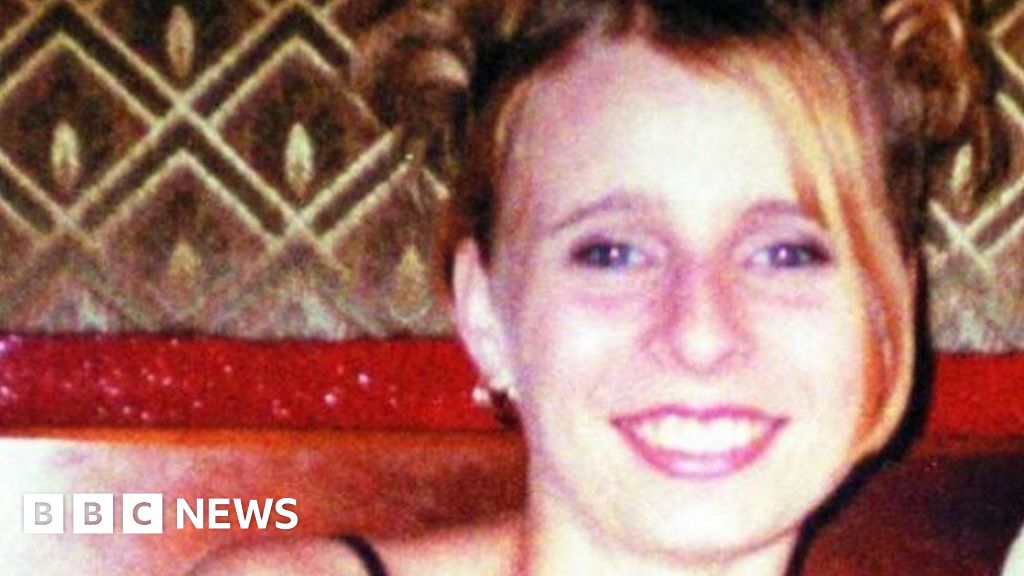Bob Morning and his wife Joyce have faced major challenges – during and after his hospital admission
The long-term challenges facing patients who have been through intensive care are something NHS Tayside recognised a decade ago.
They set up a critical care recovery programme to help people who need prolonged physical and psychological support.
Now they are extending that to patients who have been affected by coronavirus.
It is a remarkable feat to have walked out of intensive care after more than two months. Hooked up to a ventilator, in an induced coma to give your body the best shot at beating Covid-19.
Bob Morning knows how lucky he is.
Image copyright
The Morning family
Bob Morning remembers little of his time in hospital
After falling ill, the 65-year-old he was admitted to Ninewells hospital on 4 April.
He says he remembers nothing. “First day of lockdown, I had a high temperature. It gradually got worse and Joyce (Bob’s wife) decided to phone paramedics.
“Once they got there, they said I had to go to hospital. I got admitted – that’s the last I remember.”
It was wife Joyce who lived through the nightmare. She says getting Bob “back” puts things into perspective.
“Although Bob can’t remember it all, I was getting phone calls, video calls every day – so I was seeing everything that was going on,” she says.
“It just makes you think of things – money, work. You’ve just got to get on with life now.”
Joyce says getting her husband “back” has put all her worries and fears into perspective
But what Bob and many other patients who have been through intensive care are only just beginning to realise is that as big a fight awaits you after you leave hospital.
Sarah Matthews leads the intensive care physiotherapy service at Ninewells, but her job doesn’t stop at the hospital doors. She’s visiting Bob at home to help him with rehab.
“Initially, when patients move out into the community, there’s a perception that ‘I’ve been discharged from hospital, that’s it, I’m better’. And then reality hits, and you find they are exhausted and they can’t do the basic things they used to do.
“Even getting up and getting washed and having breakfast is exhausting, so we always try to prepare patients for that. They always laugh at us and say ‘I will be fine’ and then invariably they always say ‘Yeah, OK, that is very tough.'”
Bob is being helped by intensive care physiotherapy specialist Sarah Matthews as he recovers at home
NHS Tayside set up a service to support critical care patients 10 years ago because they saw that it helped prevent readmissions further down the line.
They say the Covid pandemic has shone a spotlight on the unique challenges faced by any patient who has been through intensive care.
Weight loss, muscle wastage, difficulty swallowing – are all common themes; and then there are psychological problems like anxiety, flashbacks and difficulty concentrating.
Unique challenges
Dr Pauline Austin, who is a consultant in intensive care, says: “Admission to intensive care is a life-changing event for anybody and the problems they suffer are often very significant and last for a very long period of time.
“I think we as a team recognise that surviving intensive care is just the start of the journey.
“We need the team to support them as they get better in hospital and as they are discharged and go home and make their recovery journey.”
Anne Smith is an ICU recovery follow-up nurse and was part of the initial pilot of the critical care support service.
Dr Pauline Austin says patients suffer problems for a significant period of time
She says: “I think you have to take each patient as an individual.
“There are common themes of poor mobility if you’ve had somebody who has a significant weight loss when they’ve been in.
“For a lot of patients, because their sense of taste has been altered, they’re not hungry and they don’t want to eat when they get home. So their actual recovery process can be slow.”
Patient support
With a growing body of evidence to show there can be long-term physical or mental effects after contracting coronavirus, the Scottish government is setting up a National Rehabilitation Board to support patients.
It comes against a backdrop where there have been shortages of physiotherapists, psychologists and occupational therapists.
The government is setting out a framework to assist health boards and health and social care partnerships across Scotland following the pandemic.
Meanwhile, at home, Bob is doing the work. It’s all about small steps, but every one gets him closer to recovery.
































